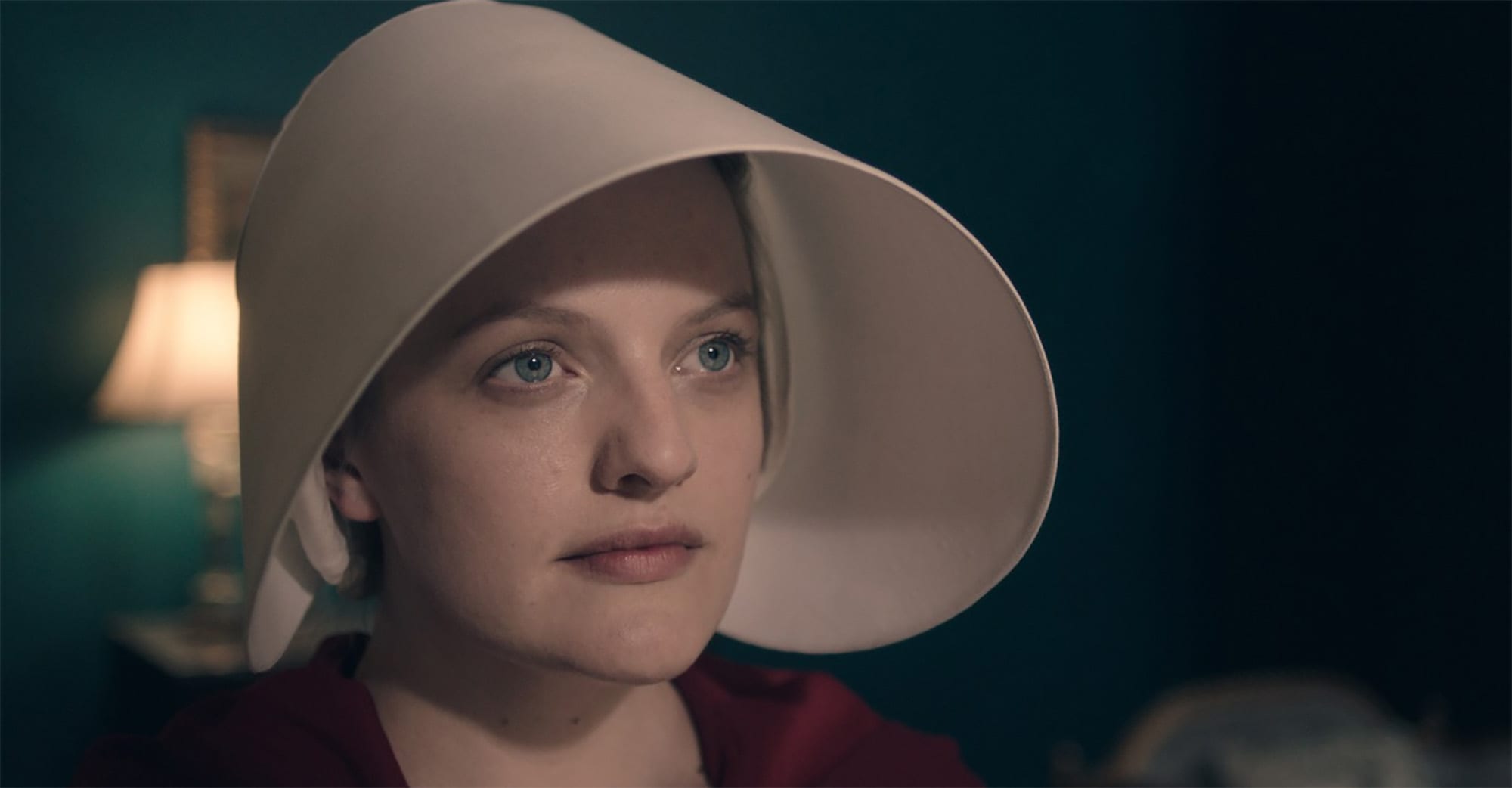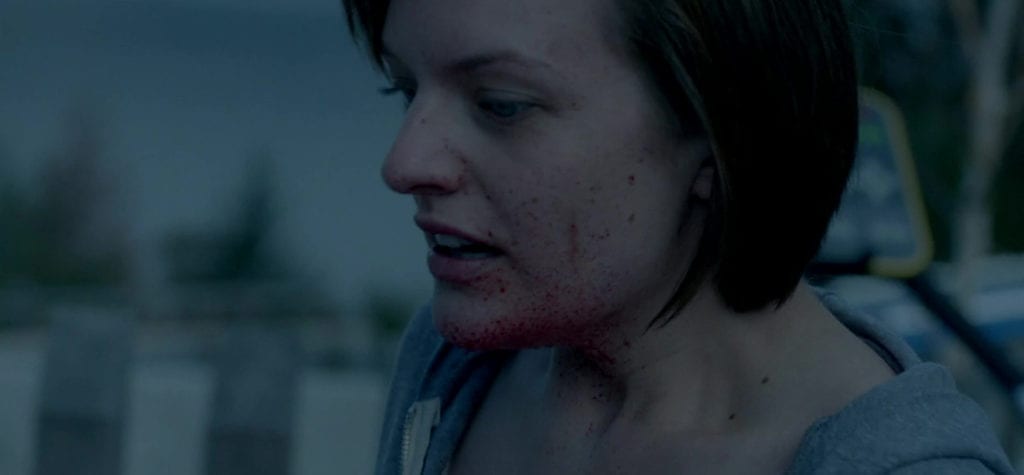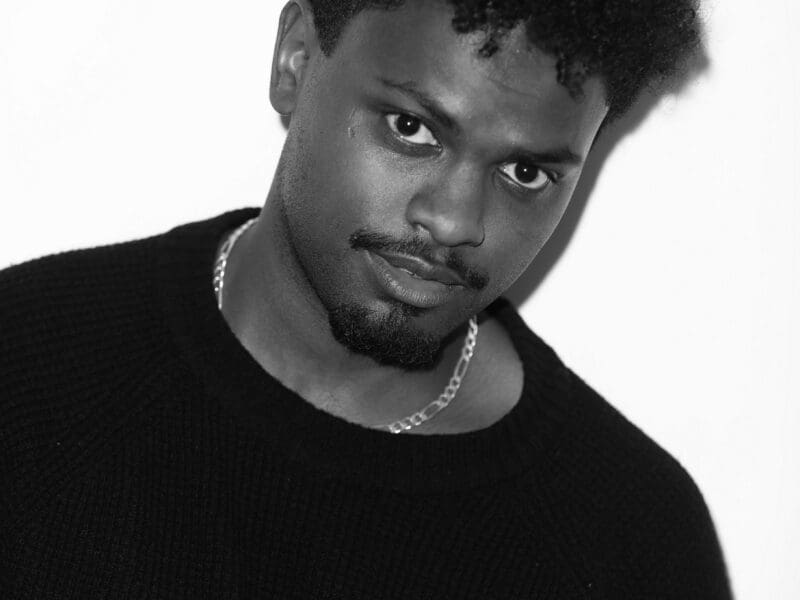
Why ‘Top of the Lake’ is still Elisabeth Moss’s greatest role
It’s evident from the types of roles she repeatedly takes on that Elisabeth Moss has a strong personal brand.
Between Peggy Olson in Mad Men and June Osbourne in The Handmaid’s Tale, Zoey Bartlet in The West Wing and Sophie in The One I Love, all the way back to severely burned teenager Polly in Girl, Interrupted, Moss embraces everywoman characters with unique and bracing new depths to them.
Moss’s characters are often tenacious but headstrong. They have a capricious ferocity often hiding in a buried vulnerability. They’re ambitious and driven, but they’re held back from realizing their full potential.

The actor once told WWD that she doesn’t necessarily seek these characters out, but it’s important to her “to play women as they are.”
“Women are different because they’re all human beings and all human beings are different. Most people are strong and vulnerable and they’re complicated and have flaws and sometimes they’re heroic and sometimes they’re not. For me, it’s not important to play one thing. I like to do it all.”
Which explains why her characters are always so fully realized. And though she’s done some extraordinary performances in her time, there’s one in particular that continues to stand out to us as being her most definitive – Robin Griffin in Top of the Lake.

We’re going to go ahead and bypass the existence of S2 of the show (Top of the Lake: China Girl) for the simple reason that it’s absolutely dreadful and that Moss’s performance suffers as a result. But S1 is a near flawless crime drama in which the actor’s skillset is given the space to shine.
Hailing from Jane Campion, the show follows Detective Griffin as she investigates the disappearance of a pregnant 12-year-old in New Zealand.
Though this premise provides the central mystery around which the plot revolves, it takes a backseat to the unfurling of Griffin’s own troubles as she’s forced to face her own past and the mysteries of her own life.

In doing so, Griffin has to stand up to the volatile patriarchy who run the town (and who seem to know far more about her past trauma than she even does). In one scene she’s surrounded by a pack of jeering men in a bar as she sidesteps provocations concerning how the missing 12-year-old deserved to be raped. Instead of stepping away from them, Griffin steps up. She continues playing darts. She cooly throws one into a man.
It’s a scene that highlights Moss’s talents perfectly. Her physicality in striving not to react or to respond to the men harassing her shows Griffin’s tough exterior. But Moss’s understated performance suggests there’s far more beneath the hard armor of the character – so much so that every gesture she makes comes off as a violent overcompensation for whatever emotions are clearly bubbling away underneath.
Moss doesn’t give us these emotions instantly. She plays them out slowly and sharply to shattering effect, removing each layer of her devastation and fractured psyche with care and weight. Over the seven episodes of the season, Moss transforms Griffin from one state to another and back again. Through a series of heavy twists and revelations we can see the trajectory of how the character has become so worn and cold, yet ruthless and driven for justice.

The central mystery takes a backseat to the character’s own investigation of her life and our determining of who she is, how she’s acting, and why she’s doing the things that she is. In many ways the central investigation is irrevocably tied to the trauma of her own life.
This is where Moss really dazzles with her powerhouse performance as a character dealing with the fallout of multiple sexual assaults within a small community. Somehow the actor embodies a shared sense of trauma. She carries the collective fury of all women reflecting on the behaviors of sexual abuse and the insidious manner with which such acts of violence are entrenched within our culture.
As Griffin, Moss is furious, heartbroken, violent, unyielding, fragmented, and emotionally devoured. At turns we wonder if she’ll ever get back up and at others we wonder if she’ll be able to hold back from completely destroying her enemies.

It’s a phenomenal performance – one that is (as Moss suggested) less about expressing the dimensions of a strong woman and more about defining humanity at its most earnest, prickly, and boldest.
If you’re yet to appreciate her astonishing role in the show, we urge you to stream it immediately. And if you’re already well versed in the good gospel of Moss’s incredible acting achievements in the show, simply take this as a nudge for you to revisit Top of the Lake again soon.







